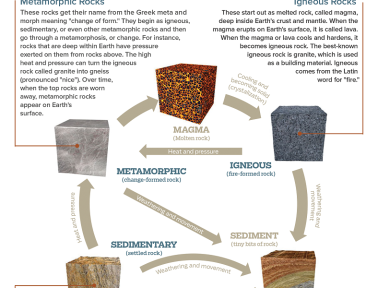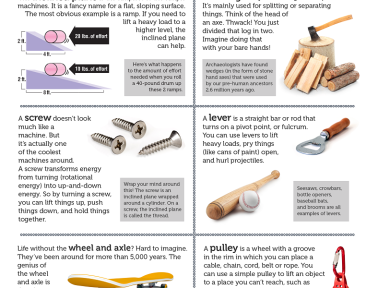My boy cut an opening in his t-shirt recently. Well, according to him, the scissors were simply strolling on the counter when they walked right over to him as well as reduce a hole in his tee shirt. Currently, you and I understand which circumstance is more than likely real, but does he? That gets complicated.
Kids are notorious for fibbing. Like the majority of childhood years challenges, there are many different factors behind the habits.
Truth vs Fiction
Recognizing the difference between fact as well as fiction is an ability that includes age as well as experience. Children typically have a tough time recognizing without a doubt what is fantasy as well as what is fact. That’s why they enjoy an excellent fairy tale, become new characters with the simplest of outfit changes, and also symbolize all the magic of holiday practices. With the effective creative imagination that typically comes with childhood years, young youngsters are often efficient in creating narrative that is so brilliant even they believe it holds true.
Wishful Thinking
Sometimes kids say what they wish was true. Spoken ins and outs may journey them up, taking a hope and turning it right into a declaration of fact. “Johnny said I might come.” “Sarah stated I might have it.” “Mom stated we might do it.” We can verify their needs while still making clear the truths. “Is that what took place, or what you were hoping would take place?” “I can see that you would certainly want to have cookies for supper, yet I recognize that …”
Hiding Pity
Lot of times, if you look behind the tale your child is weaving they might be concealing shame or shame regarding something. It’s also awkward to accept the reality, so they create something easier. My boy’s tale is instance in factor. As opposed to feeling badly about harming his own shirt (one of his faves, incidentally) he produced a story to soften the blow.
Responding roughly only aggravates the circumstance when pity, sense of guilt, or shame is the incentive. Respond with mild inquiries, recognitions, as well as reinforcements. “I recognize you wouldn’t wish to ______. It does not really feel good when we make errors, however it’s OK. I make blunders also. What’s truly crucial to me that we tell each other the reality so we can aid each other.”
The Greater Great
Particularly for older youngsters, deceit in fact becomes a pen of prosocial actions. As children familiarize the exaggerations that might be told, even by adults, they start to see lying as a way to conserve others from discomfort and disappointment. They’re being polite, approximately they might think.
Regrettably, we usually enhance this when we encourage exaggerations as manners. Quickly, not distressing Grandmother by informing her there are swellings in the mashed potatoes is on the exact same ethical airplane as not distressing mother by informing her regarding a battle at institution. As grownups, we can aid avoid this catch by showing kids how to be sincere without being rough. Really did not like dinner/the gift/etc.? You can still say “Thank you. That was so kind of you.”
Self-Preservation
One of the most obvious factor children would certainly lie is to cover their tracks. They do not wish to get in trouble, let down, or deal with the consequences, so they produce a cover. When we make it clear to children that we prefer to hear the awful fact than a perfectly constructed lie, we give them space for honesty.
Severe responses to misbehaviours can likewise promote deceit. I spoke when with a lady who lived in fear of her abusive dad. She stated that his quick temper really did not do much to keep her in line, but it did teach her to be an actually great liar. She felt she needed to be to shield herself as well as her sibling.
Abuse may get on the far end of the range, but when we have an explosive action to mistakes or have a tendency to assign consequences that are out of balance with the habits, we really encourage more deceit.
So currently we comprehend a bit extra regarding why children may not inform the truth, currently the concern is what should we do concerning it? A lot of professionals concur that overreacting or reproaching your youngster will do little to aid and may even be disadvantageous when you consider the web link between dishonesty as well as embarassment. Here are a few methods to consider:
Discuss Fact
On a regular basis talk about reality vs fiction. While reading stories, playing pretend, or viewing a show, pause once in a while and ask, “That’s quite fun/silly/etc., however could it truly happen?” “Is this a true tale or a fiction tale?” This simple workout aids youngsters with comprehending what it implies to tell the truth, while also assisting to construct an important literacy skill too.
Allow Time for Thought and Clarity
Sometimes when you capture a kid presenting an untruth, the best thing to do is to wait. As my older boy wove a story, I listened with a reflective “hmm”, honestly attempting to determine exactly how to respond. As I bought time for myself, I was unknowingly likewise providing him the time he required to make clear things himself. A brief pause was adhered to by, “Well, it really did not actually happen, but it would certainly be amusing if it did.” Which I followed with, “Well that makes more feeling! I was starting to really feel a little confused!”
For older kids particularly, just providing think time can untangle the web on its own. If your kid requires triggering, genuine inquiries like, “That seems a little complex to me, due to the fact that I recognize …” will certainly provide him the opportunity he needs to straighten points out on his own terms.
Develop a Sincere Society
Make it clear that sincerity is a characteristic that you value. Show this by example.










